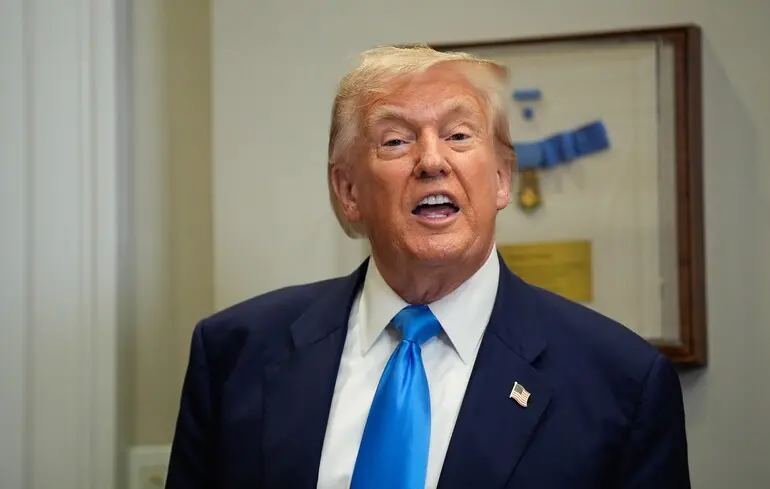Trump’s Misinformation Surge: Controversial Claims About Paracetamol and Autism Go Viral on TikTok

Within hours of former President Donald Trump holding a press conference during which he made several controversial statements regarding health and medicine, thousands of TikTok videos appeared featuring clips of his remarks.
This sparked widespread concern among medical professionals and the public, as many of these messages contained false or unverified information linking vaccination, paracetamol intake, and autism.
Trump, once again falling into the trap of anti-scientific theories, claimed that acetaminophen taken during pregnancy could cause autism in children and implied that vaccines might also be responsible.
However, he provided no scientifically backed evidence to support his claims, which have been widely debunked by experts in medicine and research.
Nonetheless, millions of TikTok users viewed these fragments, often shared without any disclaimer or context clarifying their unsubstantiated nature.
According to analytics firm Zelf, videos discussing acetaminophen, vaccines, and autism amassed over 100 million views in just two days.
The most popular of these were four clips, collectively viewed over 33 million times, published by outlets like Daily Mail and Fox News, which simply reposted Trump’s statements out of context, without clarifying that scientific consensus does not support these claims.
Medical authorities and international health organizations responded promptly, emphasizing that only treatments validated by rigorous research are safe during pregnancy, and condemning the implicit suggestion that acetaminophen poses a risk for autism.
They also strongly dismissed the idea of a causal link between vaccines and autism, an unfounded myth long refuted by science.
During the COVID-19 pandemic, major platforms like TikTok, Google, and Meta implemented centers dedicated to curbing medical misinformation and actively directed users to trusted sources.
However, these efforts waned after the pandemic subsided.
TikTok’s policies explicitly prohibit content that could cause significant harm, such as discouraging vaccination or spreading false information about disease transmission.
Yet, in the case of Trump’s statements, social media platforms exhibited inconsistencies: Facebook and Twitter, for instance, left similar false claims online in 2020, despite their policies.
TikTok’s strained relationship with Trump continues; he has used his influence to block efforts to ban the app in the U.S., and now seeks to acquire TikTok’s American business through a politically motivated sale, which could further facilitate the spread of misinformation.
Meanwhile, global organizations like WHO have issued warnings regarding the proliferation of false health claims related to these topics, urging adherence to scientific facts.
The ongoing political and social tensions surrounding TikTok and Trump significantly contribute to the challenge of combating health misinformation while highlighting the importance of relying on verified scientific evidence to protect public health.

